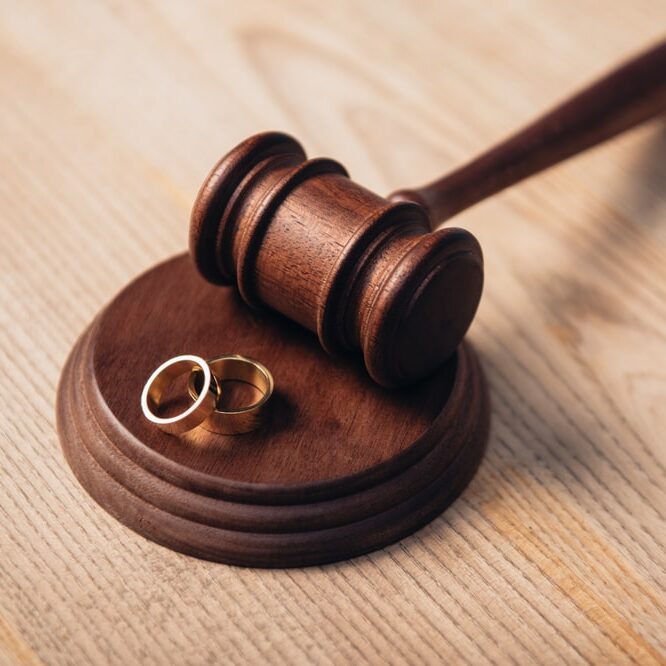Getting a divorce in New Jersey is generally quicker, cheaper and easier if it proceeds as an uncontested divorce — where both parties agree on the major issues and are prepared to sign a marital settlement agreement.
However, if issues are challenged or disputed — as is common when spouses separate — the divorce is contested and cannot be finalized until all the outstanding matters have been settled. Sometimes, this even involves a trial with a judge deciding matters.
An uncontested divorce in New Jersey requires minimal court intervention but may still require legal assistance. It must still be signed off by a judge before the divorce becomes “absolute”.
Spouses must also meet certain residency requirements before they can proceed with an uncontested divorce…
Do you qualify for an uncontested divorce in New Jersey?
To file for an uncontested divorce in New Jersey, you’ll need to meet three basic requirements:
- Agreement on all the main divorce issues
- Agreement on the legal reason for your divorce
- The New Jersey residency requirement
Let’s take a closer look at each of these.
Agreement on the issues in your divorce
Generally, the main contentious issues in divorces are:
- Property division (which must be “equitable” in New Jersey)
- Spousal support (alimony)
- Child custody and parenting (if you have children together)
- Child support and healthcare expenses for the children
In many divorces, these matters cannot be settled without mediation, collaboration between lawyers or, in some cases, litigation. Even in uncontested divorces, where couples agree on most aspects of the divorce, a mediation session may be necessary to reach a full agreement.
The documents prepared as a result of the mediation session can form the basis of the marital settlement agreement.
Agreement on the grounds for divorce
For most uncontested divorces, the legal reason (“ground”) for divorce is agreement with one’s spouse that the marriage has been broken for six months due to “irreconcilable differences,” with no reasonable prospect of getting back together.
This is known as a no-fault divorce because no blame is apportioned to either spouse for the marriage breakdown. New Jersey does allow both no-fault and fault divorces (where fault is apportioned to one of the partners) but no-fault divorces are by far the most common.
New Jersey residency requirement
To get a divorce in New Jersey, you or your spouse must have been a resident of the state for at least one year before filing divorce papers.
What happens during an uncontested divorce in NJ?

Divorces are legal processes and so even uncontested divorces require the right forms and supporting documentation filed in the right places or there could be delays to the process.
You will need to go through the following four main steps:
1.Obtain and complete the divorce forms
Even if you and your spouse agree on the legal reason for the divorce and all aspects of it, one of you must begin the process by collecting and completing the forms as the “plaintiff” (you cannot file for an uncontested divorce jointly).
Your divorce lawyer can provide these forms, including the Divorce Complaint and Summons forms. Alternatively, the forms and information for completing them can be found on the New Jersey Courts’ Self-Help divorce page.
2.File your divorce papers
The divorce forms need to be filed at the Family Division of the New Jersey Superior Court in the county that will handle the divorce proceedings. This is usually decided by where you or your spouse lived at the time that the reason for your divorce occurred.
In most cases (no-fault divorces), this will mean filing for divorce in the NJ county where:
- You were living the end of the six-month period after you realized the marriage was broken, or
- Your spouse was living at that time, or
- You or your spouse currently live
When you file the divorce complaint and summons forms in an uncontested divorce, you should also file the settlement agreement. A fee (currently $325 if you have children and $300 if you don’t) will be charged by the court clerk. You can apply for a waiver if you don’t have it.
3.Serve the divorce papers to your spouse
When court papers from a “plaintiff” inform a “defendant” of legal action, it is called “serving” papers. You can do this by giving or mailing the documents to your spouse, who must then sign an “acknowledgment of service” form to confirm receipt of the documents.
If giving or mailing the documents is not possible, a sheriff or other authorized process server can hand deliver the documents (for a fee).
4.Wait for a response
All that your spouse needs to do after signing the “acknowledgment of service” form in an uncontested divorce is file an appearance form within 35 days of being served with papers.
Why hire a divorce lawyer for an uncontested divorce?
On the face of it, an uncontested divorce may seem quite straightforward.
However, complications often arise and no divorce can be classified as truly “uncontested” until both parties have signed a marital settlement agreement and all the correct forms and paperwork are filed with the court.
Often, unforeseen issues arise or something comes up that was missed during previous discussions. For instance, full disclosure of assets is required by both parties so that an equitable division of marital property can be finalized. If certain assets were omitted from the calculations, the “agreement” may need to be revisited.
It is often best, therefore, for separating spouses to engage legal assistance at some point to prevent these issues from causing major disputes or delays — or ending up in litigation and a trial.
A qualified divorce lawyer will ensure that nothing is missed, outline the legal options available and ensure that your rights are protected.
Divorce lawyers can also draft or review marital settlement agreements to ensure that they are legally enforceable.
If you need assistance with a divorce in New Jersey, contact the Law Office of Steven M. Cytryn, LLC for an initial consultation.
